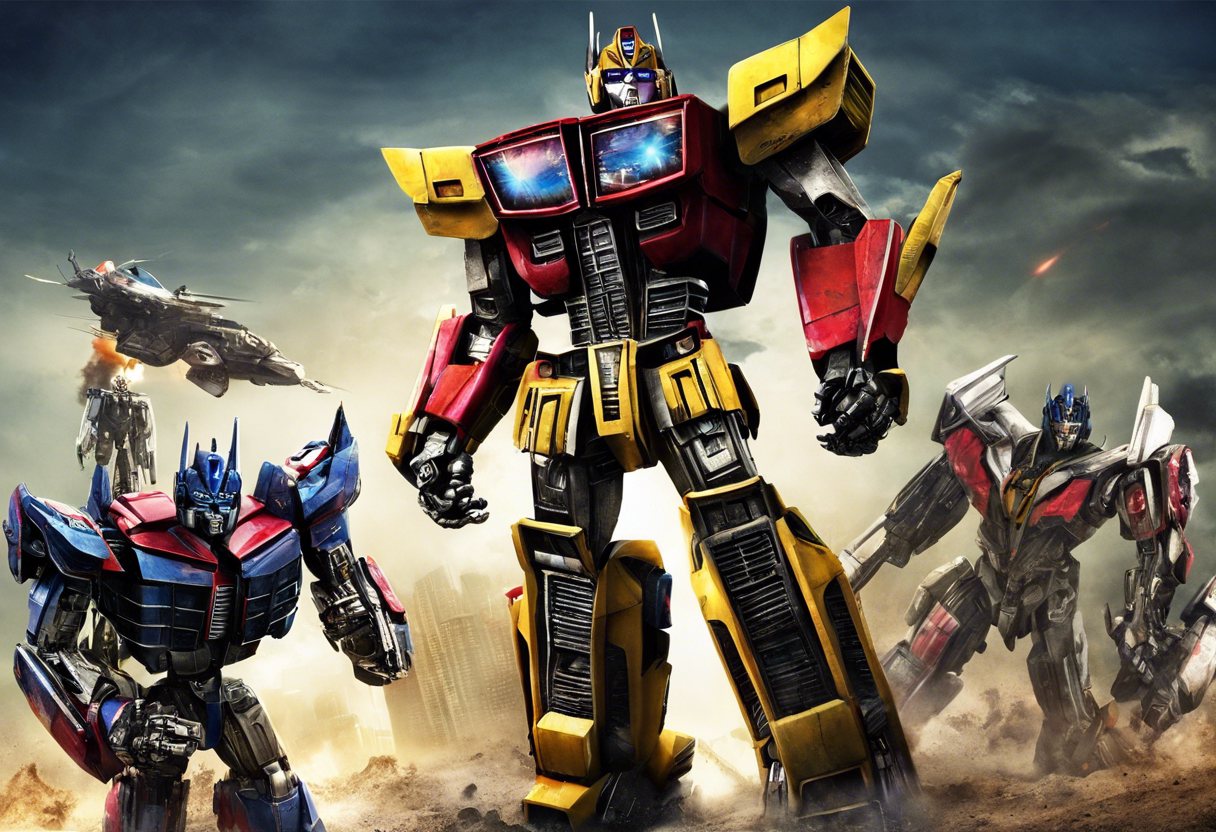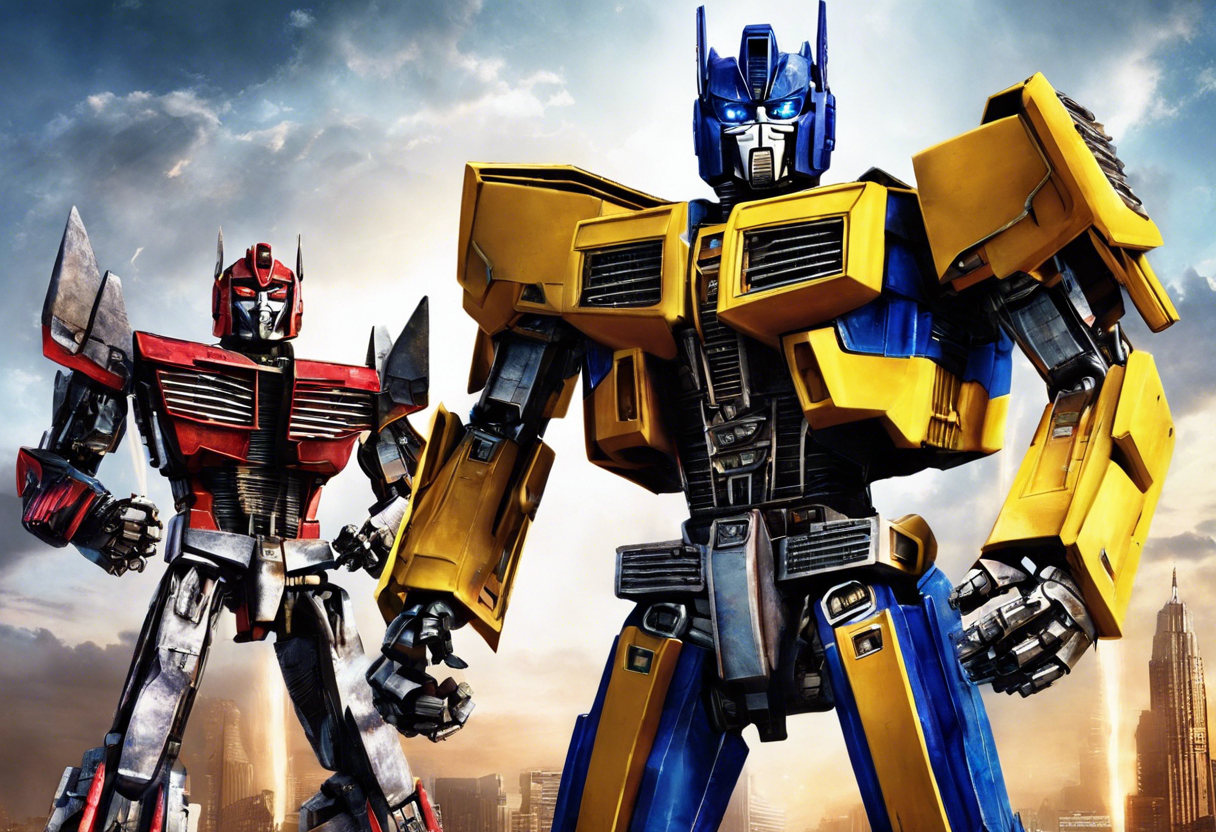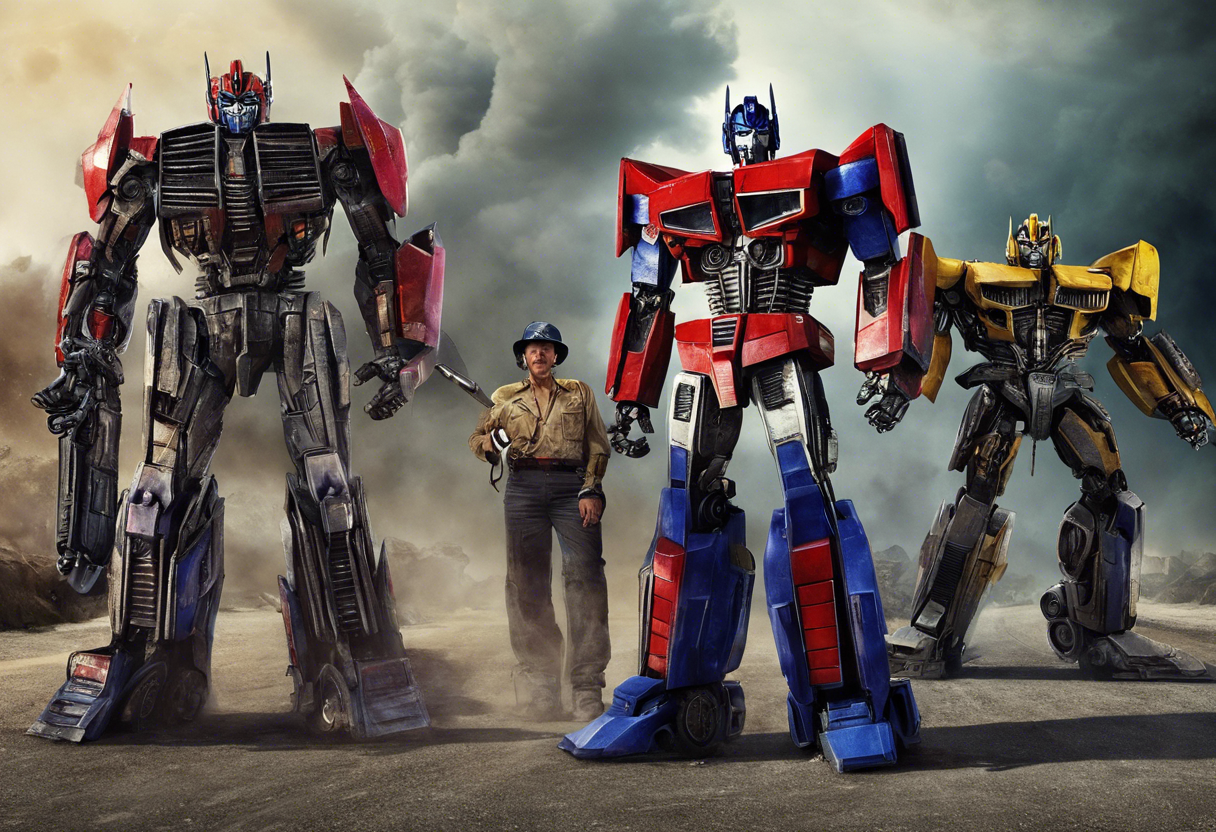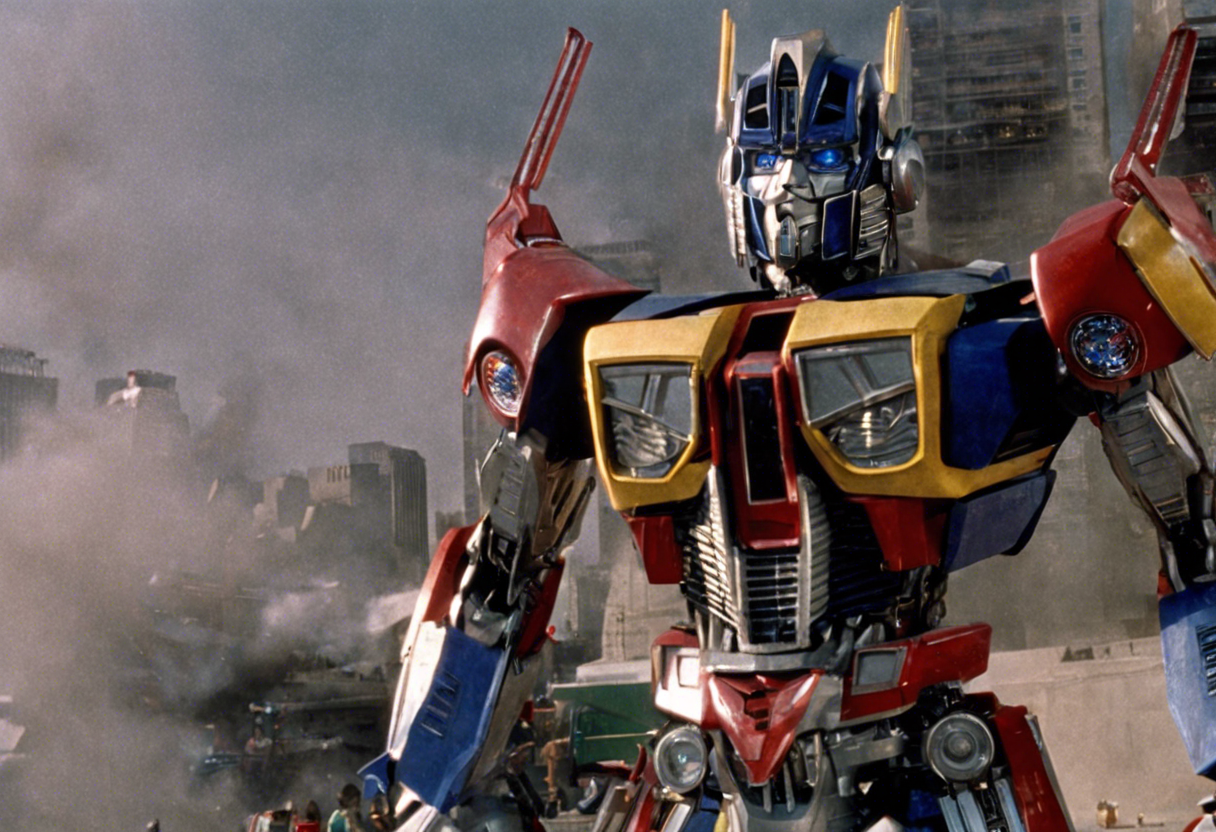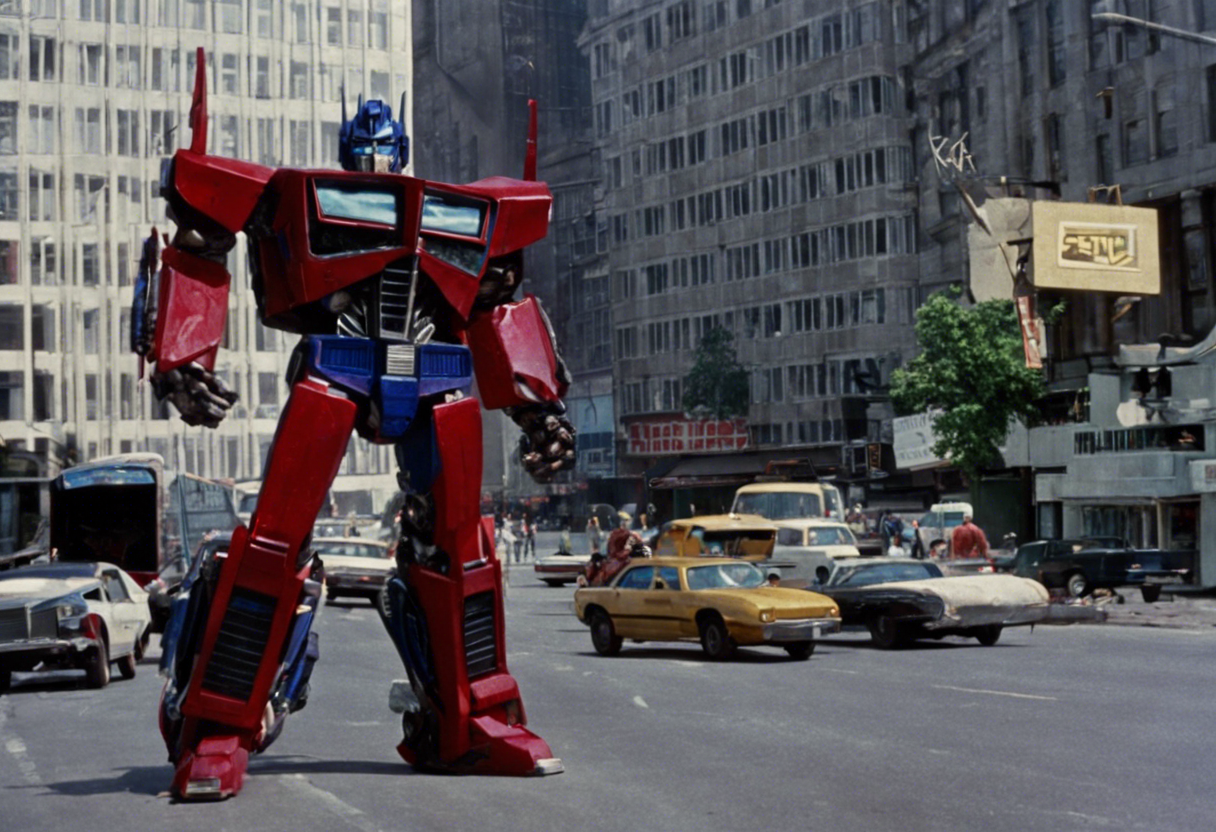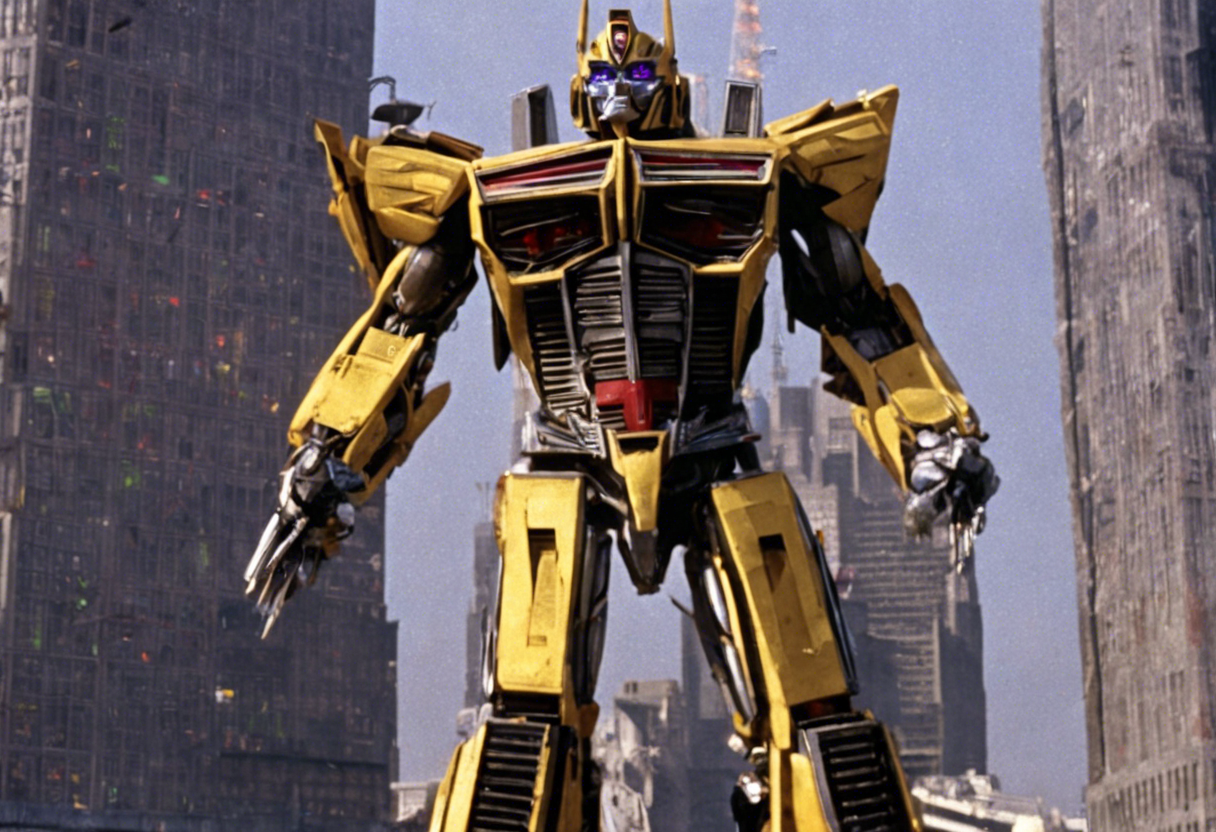Introduction
The Transformers: The Movie, released in 1986, is an animated science fiction action film that marks a pivotal moment in the Transformers franchise. Directed by Nelson Shin and produced by Sunbow Productions, Marvel Productions, and Toei Animation, the film is based on the popular Transformers television series. The screenplay was written by Ron Friedman, who also served as a script editor for the original Transformers cartoon series.
The production of the film began in the summer of 1984, with Friedman developing the first story outline, which included the controversial decision to feature the death of Optimus Prime, a demand from Hasbro that Friedman initially opposed [5]. The film’s development involved several drafts and revisions, with significant input from creative director Jay Bacal and associate producer Flint Dille.
The Transformers: The Movie was released in North America on August 8, 1986, and in the United Kingdom on December 12, 1986. The film boasts a notable voice cast, including Eric Idle, Judd Nelson, Leonard Nimoy, and Orson Welles in his final film role [2].
What sets The Transformers: The Movie apart is its ambitious storytelling, complex character arcs, and the introduction of new characters and concepts that have become integral to the Transformers lore. The film’s blend of action, drama, and science fiction elements has made it a beloved classic among both children and adults.
Plot Summary
The film is set in the year 2005, where the Decepticons, led by Megatron, have conquered the Autobots’ home planet of Cybertron. The Autobots, operating from Cybertron’s two moons, plan a counteroffensive. Optimus Prime sends a shuttle to Autobot City on Earth to gather supplies, but the Decepticons discover their plan, kill several Autobots, and hijack the ship.
Upon the shuttle’s arrival at Autobot City, a fierce battle ensues between the Autobots and Decepticons. Optimus Prime and Megatron engage in a mortal combat, resulting in both leaders being gravely injured. Optimus Prime passes the Matrix of Leadership to Ultra Magnus before his death, and the Decepticons retreat to space [1][2].
The Decepticons, to conserve fuel, jettison their wounded, including Megatron, who is abandoned by Starscream. Megatron and the other wounded Decepticons are found by Unicron, a sentient planet that consumes other worlds. Unicron offers Megatron a new body in exchange for destroying the Matrix, and Megatron is remade into Galvatron.
The Autobots, led by Hot Rod, form an alliance with the Junkions and launch a final assault on Unicron. Hot Rod and his group crash into Unicron’s left eye, and during the ensuing battle, Hot Rod activates the Matrix, transforming into Rodimus Prime. With the Matrix’s power, Rodimus Prime destroys Unicron and saves the Autobots and Cybertron [1][2].
Themes and Symbolism
The Transformers: The Movie delves into several profound themes that add depth to its narrative. One of the central themes is the struggle for leadership and the passing of the torch. The death of Optimus Prime and the subsequent rise of Hot Rod to become Rodimus Prime symbolize the transition of power and the maturation of a new leader.
The film also explores the theme of sacrifice and loyalty. Optimus Prime’s ultimate sacrifice to save his comrades and the Autobot cause is a powerful example of selfless leadership. The loyalty and camaraderie among the Autobots are highlighted through their collective efforts to defeat the Decepticons and Unicron.
The character of Unicron represents a formidable and existential threat, symbolizing the destructive power of chaos and the importance of unity in the face of overwhelming odds. The battle against Unicron serves as a metaphor for the struggle against forces that seek to destroy entire worlds and civilizations.
Additionally, the film touches on themes of betrayal and redemption, particularly through the characters of Starscream and Galvatron. Starscream’s treachery against Megatron and Galvatron’s eventual realization of his mistakes add layers to the story, highlighting the complexities of character motivations and the consequences of their actions.
Cultural Impact
The Transformers: The Movie had a significant cultural impact upon its release. Despite its modest box office performance, the film has become a cult classic and a staple of 1980s animation. The movie’s influence can be seen in subsequent Transformers media, including television series, comics, and live-action films.
The film’s soundtrack, featuring electronic music by Vince DiCola and songs by Stan Bush and "Weird Al" Yankovic, has also become iconic. The song "The Touch" by Stan Bush is particularly memorable and has been referenced and parodied in various forms of media.
The Transformers: The Movie has also inspired numerous adaptations and references in other media. The film’s characters and storylines have been incorporated into other Transformers series, and it has influenced other animated films and television shows.
Critical Reception
At the time of its release, The Transformers: The Movie received mixed reviews from critics. Some praised the film’s action sequences, visual effects, and sound design, while others criticized the screen time for certain characters and the overall pacing of the story [2].
The death of Optimus Prime was a particularly contentious issue, as it was unexpected and emotionally impactful for many young viewers. This plot point has been both praised for its boldness and criticized for its potential to traumatize children.
Over the years, the film has developed a more positive reputation, with many critics and fans appreciating its storytelling, character development, and the emotional depth it brings to the Transformers franchise.
Legacy
The Transformers: The Movie continues to hold a significant place in cinematic history and the hearts of fans worldwide. It has inspired generations of filmmakers, artists, and writers, and its influence can be seen in many subsequent animated films and television series.
The film’s legacy extends beyond its own narrative, as it has contributed to the broader Transformers franchise. Characters introduced in the film, such as Galvatron and Rodimus Prime, have become integral to the franchise’s lore.
The movie’s themes of leadership, sacrifice, and unity continue to resonate with audiences, making it a timeless classic that transcends its genre. As a piece of 1980s animation, The Transformers: The Movie stands as a testament to the creative and storytelling potential of animated films.
References
- https://www.imdb.com/title/tt0092106/plotsummary/
- https://en.wikipedia.org/wiki/The_Transformers:_The_Movie
- https://aish.com/why-the-transformers-movies-are-really-stories-of-jewish-resilience-and-adaptability/
- https://en.wikipedia.org/wiki/Transformers_(film)
- https://www.youtube.com/watch?v=HgcX9kGUpDw

